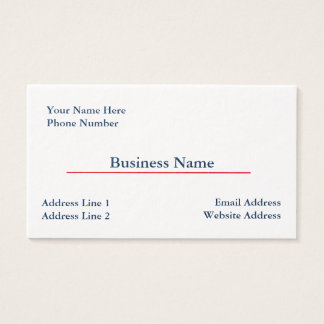One way to get strategic with your business trajectory is to land a trusted adviser in the form of a mentor. Mentoring can take many forms, such as a one-on-one relationship or a mentoring circle within an organization. The best mentor-mentee relationships involve two-way learning and reciprocation.
Mentors help professionals feel more engaged, derive more meaning from their careers, and grow their businesses. According to the Small Business Administration, small business owners who receive three or more hours of mentoring report higher revenues and increased growth.
Need more of a push? Here are seven reasons why you need a mentor this year:
1. A good mentor will help you identify blind spots
Blind spots are a funny thing because they exist for everyone—even the most successful leader. But when blind spots are our own, we are oblivious to them. While you yourself may not easily recognize where your weaknesses lie, a mentor can help you improve self-awareness. Think of this aspect of mentoring as a healthy reality check.
2. Give you access to a sphere of influence
A mentor can offer a large network of connections that you might not otherwise have had access to. Would your business benefit from introductions to more distributors, potential customers, or new vendors? Your sphere of influence facilitates these key interconnections.
3. Allow you to benefit from a free resource
How many small business resources can you name that cost $0? Not that many. And you can’t put a price on a mentorship, except for time spent. Both parties should agree to meeting parameters, times, dates, and agenda items so you can meet as efficiently as possible. When you enter a mentor-mentee relationship in an organized way, it will be time well spent for both parties.
4. Cheer you on through ups and downs
We could all use a cheerleader in our corner, especially when it comes to the trials and tribulations of running a successful small business. When you are paired with the right mentor, they genuinely want you to succeed. Your mentor will encourage you during your lows and be one of the first to celebrate your highs.
5. Challenge you in positive ways
Short-term and long-term goals aside, a great mentor will also challenge you to think outside the box. In an article in Inc., John Brandon explains one of his own techniques for mentoring: “One strategy I’ve used with those I’m mentoring is to assign a fairly difficult task to complete—something that will require my involvement. I don’t see mentoring as just a weekly chat. It’s an ongoing relationship and one that should always be moving toward a specific goal. It has to be intentional and specific, not vague and by the seat of your pants. Keep track of the task together and use it as a teaching aid.”
6. Share what they’ve learned from their own experience
Learning from others’ mistakes can be priceless. Who wouldn’t want to shorten the learning curve when it comes to building your small business? In most scenarios, a mentor is older, wiser, with years more business experience. With that experience comes tales of far reaching success, and also brutal failures. Honest, vulnerable conversations with your mentor will help shape your future business decisions.
7. Help you overcome your complacency
Have you ever felt stagnant in your business? A good mentor will help you establish realistic goals, hold you accountable to the tasks that help you achieve those goals, and push you when you feel like giving up.
How to find a business mentor
Once you have decided that you would like to have a mentor, how do you go about locating the right one for you?
Look at your current network. Is there another small business owner whose company’s growth is something you’d like to emulate within your own business? Take stock of your LinkedIn connections to see who is open to mentor-mentee opportunities.
Check for local SCORE opportunities. SCORE was founded in 1964 as a nonprofit resource partner of the U.S. Small Business Administration (SBA). The SCORE network includes 10,000+ expert volunteers offering business mentoring and workshops at 300 SCORE offices across the country. Visit the SCORE website to find the closest local office; your local SCORE chapter will help pair you with a suitable mentor.
Investigate contacts within your specific industry. You might think this suggestion is counterintuitive for competitive reasons. However, seasoned professionals who are passionate about their field often offer mentorship services to other small business owners in their own industry.
Research. See if there are private organizations in your area, such as the Pink Mentor Network, a mentorship community for women in Charlotte, North Carolina. Also discover state-funded mentorship communities such as Business Mentor NY.
Finding someone you admire should be a top priority. Make a short list of potential candidates and see where your personalities align. You can feel them out by having informal meetings where you discuss your goals and trajectory before officially asking them to be your mentor.
When asking a person to become your mentor, you want to be direct. Try something like, “I can see you’re a great team leader and I’m managing a team for the first time. Would you be able to work with me over the next year to become a great team leader?”
Once you have committed to the process, good luck. And if years from now you find yourself being asked by someone to be their mentor, draw on this experience and pay it forward!





No comments:
Post a Comment